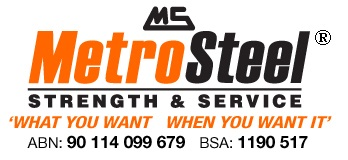We often get asked by customers to recommend the best type of metal for their project. In order to do this it’s essential that we consider the malleability and ducticity of the metal and whether it meets the requirement of the product or component that the customer has in mind.
So that said, you may be wondering what the terms ‘malleability’ and ‘ducticity’ actually mean…..
Malleability refers to the properties of a metal which when compressed shapes itself into another form. This means it can be hammered, rolled, or pressed into thin sheets. Ducticity, on the other hand, means that a metal can be stretched by pulling it without any compromise to its quality. This type of metal, for instance, can be made into wire. Essentially, metals that are high in malleabiity and ducticity can be easily shaped and formed by means of stretching or compression. This is advantageous in the sheet metal fabrication process because if the workpiece can be easily formed or stretched, it means that an experienced fabricator can produce more intricate components and parts in response to the ever changing demands of his customers.
Dough like
When metals such as steel, copper, tin, and lead are ductile or malleable they can be compared to a piece of dough. As such they can be rolled out, forced through other parts of machinery, and even returned to their original dough-like condition. Even better, the various fabrication processes leave the particles in the metal intact.
Gold is a great example of what we’re talking about. This precious material is both ductile and malleable meaning it can be pulled into a thin wire or rolled out very thinly. Other metals also possess these same qualities which allows them to be fabricated into parts or components of any thickness or shape requested by the customer, without experiencing any damage.
The level of malleability and ducticity does however vary from one metal to another. For example, tin and lead have higher levels of malleabiity than ducticity. For this reason they can be manufactured into any form or shape, be it a sheet of metal or a pipe. Depending on the specification of the part or component requested by the customer, an experienced fabricator will assess whether one of these qualities is more important than the other. This will help him recommend the most appropriate metal for the task in hand and allow him to produce a wide spectrum of finished products, no matter how intricate or complex they are.
Trust the experts
At Metro Steel we fully understand the importance of malleability and ducticity in metals which means we can confidently recommend the appropriate metal/s to our customers. For more information about us and the services we offer, why not take a closer look on our website, give us a call on 07 3204 1000 or drop by our premises in Deception Bay to find out how we can help you.
 Working Hours - Mon – Fri 7:00 AM – 4:00 PM
Working Hours - Mon – Fri 7:00 AM – 4:00 PM Talk to an Expert (07) 3204 1000
Talk to an Expert (07) 3204 1000